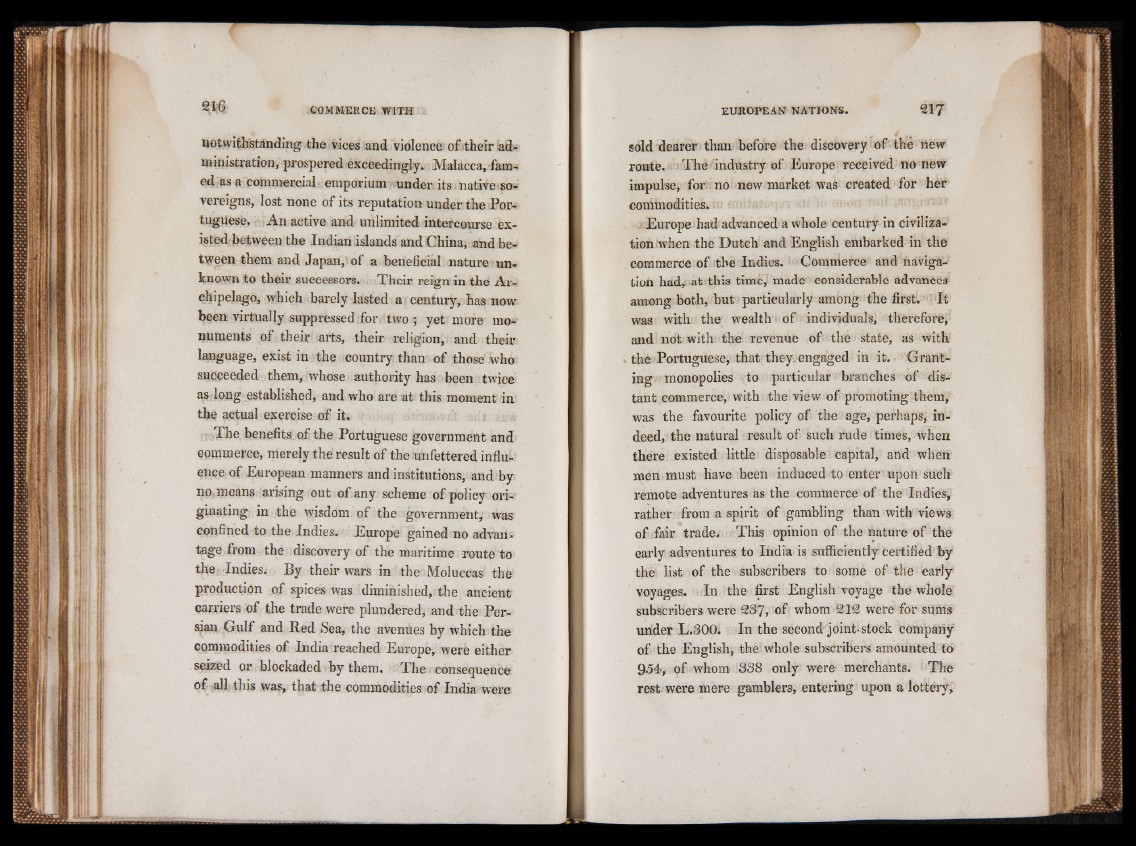
notwithstanding the vices and violence of their administration,
prospered exceedingly. Malacca, famed
as a commercial- emporium -under its native sovereigns,
lost none of its reputation under the Portuguese.
An active and- unlimited intercourse existed
between the Indian islands and China, and between
them and Japan, of a beneficial nature unknown
to their successors. Their reign in the Archipelago,
which barely lasted a century, has now'
been virtually suppressed for two ; yet more monuments
of their arts, their religion, and their
language, exist in the country than of those who
succeeded them, whose authority has been twice
as long established, and who are at this moment in
the actual exercise of it.
The benefits of the Portuguese government and
commerce, merely the result of the unfettered influence
of European manners and institutions, and by
no means arising out of any scheme of poliey originating
in the wisdom of the government, was
confined to the Indies. Europe gained no advantage
from the discovery of the maritime route to
the Indies. By their wars in the Moluccas the
production of spices was diminished, the ancient
carriers of the trade were plundered, and the Persian
Gulf and Red Sea, the avenues by which the
commodities of India reached Europe, were either
seized or blockaded by them. - The consequence
of all this was, that the commodities of India were
sold dearer than before the discovery of the new
route. The industry of Europe received no new
impulse, for no new market was created for her
commodities.
- Europe had advanced a whole century in civiliza-
tionwhen the Dutch and English embarked in the
commerce of the Indies. Commerce and navigation
had,* at this time, made considerable advances
among both, but particularly among the first. It
was with the wealth of individuals, therefore,
and not with the revenue of the state, as with
the Portuguese, that they, engaged in it. Granting
monopolies to particular branches of distant
commerce, with the view of promoting them,
was the favourite policy of the age, perhaps, indeed,
the natural result of such rude times, when
there existed little disposable capital, and when
men must have been induced to enter upon such
remote adventures as the commerce of the Indies,
rather from a spirit of gambling than with views
of fair trade. This opinion of the nature of the
early adventures to India is sufficiently certified by
the list of the subscribers to some of the early
voyages. In the first English voyage the whole
subscribers were 237, of whom 212 were for sums
under L.300. In the second joint-stock company
of the English, the whole subscribers amounted to
954, of whom 338 only were merchants. The
rest were mere gamblers, entering upon a lottery,